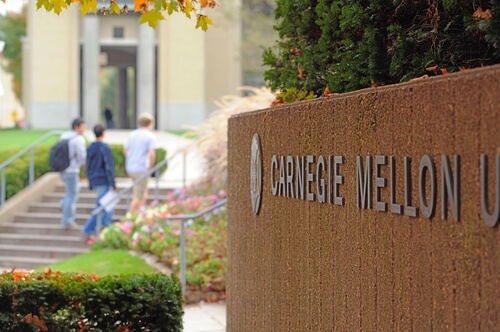 If there ever were a sign that we are “living in the future,” the ability to earn a degree in robotics (and to become a “Doctor of Robotics”) might be it. Though the earliest research programs in robotics started cropping up on select college campuses more than 50 years ago, it wasn’t until much more recently that the discipline began to gain popularity. Now, graduate students who have a background in engineering and a passion for futuristic technology can join one of nearly 70 universities in the United States that (according to NASA) include robotics on their list of specialties.
If there ever were a sign that we are “living in the future,” the ability to earn a degree in robotics (and to become a “Doctor of Robotics”) might be it. Though the earliest research programs in robotics started cropping up on select college campuses more than 50 years ago, it wasn’t until much more recently that the discipline began to gain popularity. Now, graduate students who have a background in engineering and a passion for futuristic technology can join one of nearly 70 universities in the United States that (according to NASA) include robotics on their list of specialties.
In determining this list of the top 20 robotics engineering programs, we looked specifically for schools that excelled in a few key areas.
First, we vetted schools on the comprehensiveness of their degrees. For example, an “M.S. in Robotics” fared better than an “M.S. in Computer Science: Concentration in Robotics,” which in turn fared better than an “M.S. in Computer Science” with no highlighted concentration but a strong robotics research program. In the ranking below, eight degrees are comprehensive, eight offer a specialization, and four offer general degrees with strong research programs (you can recognize this latter group by the inclusion of the qualifying phrase “Research Area” in their degree titles).
Next, we took a close look at the schools’ research programs, as this is an extremely important consideration for graduate students – especially Ph.D. students, and especially robotics engineers. To gauge the strength of their robotics research, we looked at the number of faculty conducting work in robotics or a related field and the number of focus areas/major labs included under the robotics umbrella. Note that there was some flexibility with this last metric, as not all schools organize their programs the same way. For example, some universities create consolidated labs for designated focus areas, while other colleges support networks of individual laboratories that overlap many different focus areas. In ranking schools, we did our best to award points judiciously and make fair comparisons that considered all contenders in context with one another.
Combining these factors, we were able to determine the following ranking of the 20 best robotics engineering degrees in the United States in terms of academic and innovative strength. You’ll notice that a few of these schools are quite expensive, and we’d expect no less from colleges that host some of the most well-equipped, well-funded, high-tech laboratories in the world. But when you consider the knowledge (and job prospects) that these robotics engineering schools provide, it’s easy to see how the investment will pay off.


